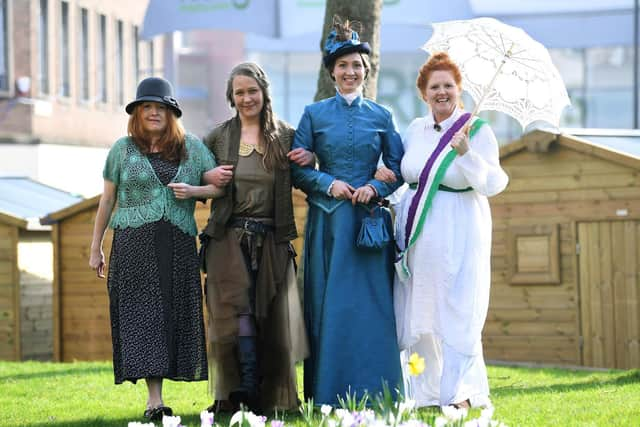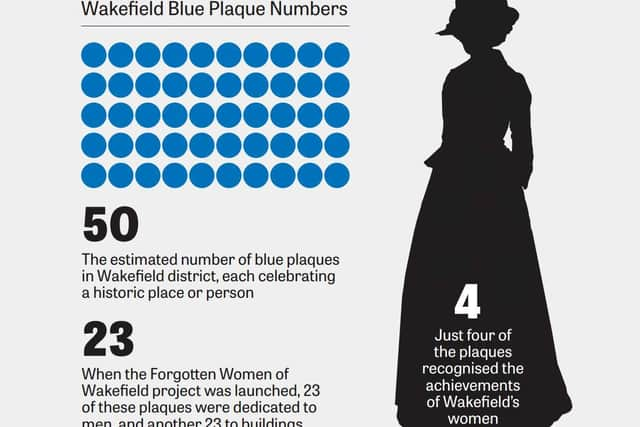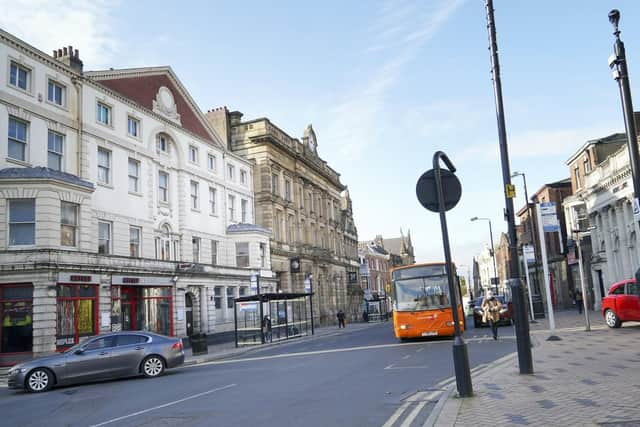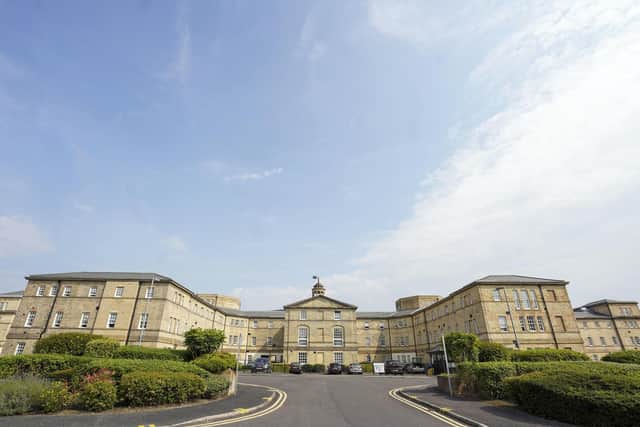Forgotten Women of Wakefield: Escaped slave and former newspaper editor among 'visionary' Wakefield women to be honoured with new blue plaques
and live on Freeview channel 276
The Visionary Women of Westgate project will honour three historic women who were at the forefront of the anti-slavery movement in Wakefield in the nineteenth century.
It has been led by the team behind the Forgotten Women of Wakefield (FWW) project, who aim to tell the stories of the women who helped to shaped the city, awarding blue plaques to recognise their cultural significance.
Advertisement
Hide AdAdvertisement
Hide AdWith the support of the Wakefield Westgate High Street Heritage Action Zone and Wakefield Civic Society, the team have now uncovered the stories of three women who helped to lead the anti-slavery movement in the city.


The team’s latest research has uncovered the stories of newspaper editor Ann Hurst, escaped slave Sarah Parker Redmond and Elizabeth Dawson, who was the secretary of Wakefield’s first Ladies’ anti-slavery society in 1857.
Sarah Cobham, who founded the Forgotten Women of Wakefield project in an attempt to ensure that the city recognises the achievements of more woman, said: “The strength and vision of Women from Wakefield’s past never cease to amaze me.
“The more we research, the more we realise they were at the vanguard of every socially important movement in the land.
Advertisement
Hide AdAdvertisement
Hide Ad“It was, of course, only after the women demonstrated a need for reform did the men get involved and I am delighted that once again, Wakefield women were at the forefront of social and cultural change.”


As part of the team’s ongoing work, two blue plaques have also been awarded to Lady Catherine Milnes Gaskell, who spent many years championing health and education among the city’s poorest citizens, and Mary Frances Heaton, who was incarcerated in West Riding Pauper Lunatic Asylum for challenging male authority.
With financial support from Wakefield Council, the FWW team have been able to carry out research on a number of historical women and complete a number of community projects.
One of these projects, titled Suppressed Suffragists: Visible Visionaries, is a collection of artistic responses to Unfinished Business: The Fight for Women’s Rights, a travelling exhibition currently on display at Wakefield Library.
Advertisement
Hide AdAdvertisement
Hide AdSarah said: “We are absolutely delighted to be able to provide the sister exhibition to the Unfinished Exhibition.


“There are so many women from Wakefield’s past whose contributions to our cultural, social, political and economic landscape have been forgotten and so, to be included in such a prestigious exhibition from London cements our place alongside such significant historical figures.
“I am so proud of our partnerships with many organisations across the city and delighted that the achievements and stories from the women from our past continue to inspire.”
Councillor Jacquie Speight said: “This is a fantastic project which supports blue plaque parity and it is very important that we get to hear about women who made an historic contributions to the anti-slavery movement, so their names are known and are visible to residents and visitors to our city in the years to come.”
Advertisement
Hide AdAdvertisement
Hide AdWhen the Forgotten Women of Wakefield project was launched, there were 50 blue plaques in the city.


Of these, 23 were dedicated to men and another 23 to buildings. Just four recognised the achievements of the city’s women.
The FWW project is aiming to uncover the stories of the remarkable women who helped to shape Wakefield, from educators and nurses to politicians and everyone in between.
With the support of the Express, the team have secured an additional 13 blue plaques for women in the city. Visit forgottenwomenwake.com to find out more.